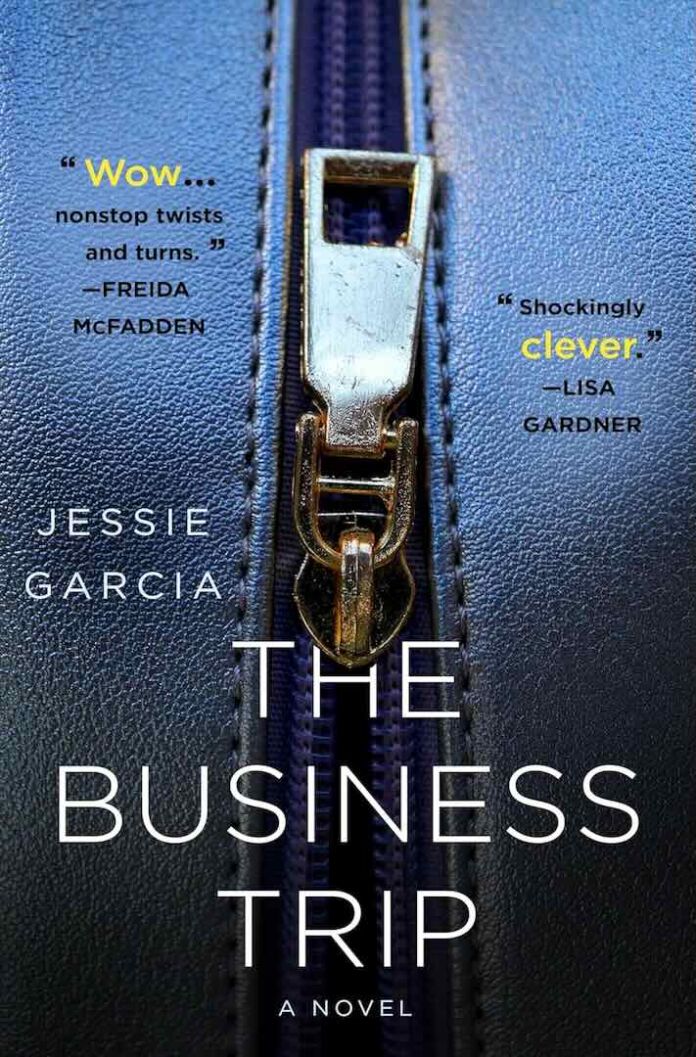In her debut novel The Business Trip, Jessie Garcia crafts a psychological thriller that begins with a seemingly chance encounter on a plane and spirals into a complex web of identity theft, murder, and revenge. The story’s premise is deceptively simple: two women from different worlds share a flight, but what follows is anything but straightforward. Garcia, drawing from her extensive experience in television news, brings a journalist’s eye for detail and tension to this compelling narrative.
Plot Structure and Development
The novel unfolds through multiple perspectives, primarily following Jasmine, a waitress fleeing an abusive relationship, and Stephanie, a successful TV news director. Their paths cross on a flight to Denver, where an innocuous conversation sets in motion a chain of events that will dramatically alter both their lives. The narrative structure is intricate, with time shifts and perspective changes that require careful attention from readers.
Key plot elements include:
- A chance meeting on a plane
- Identity theft and impersonation
- Multiple murders and frame jobs
- Complex revenge schemes
- The power of social media and technology in modern crime
Character Analysis
Jasmine
The author creates a complex antagonist in Jasmine, whose traumatic past and sociopathic tendencies are revealed gradually. Her transformation from abuse victim to calculated killer is both disturbing and fascinating. Garcia does an excellent job of making Jasmine’s actions comprehensible, if not justifiable, through carefully crafted backstory and psychological motivation.
Stephanie
As the “victim” who becomes entangled in Jasmine’s scheme, Stephanie represents privilege and success—everything Jasmine covets. Her own poor choices and deceptions make her a more interesting character than a purely innocent victim would be, though some of her decisions strain credibility.
Trent McCarthy
The male character caught between these two women is well-drawn as an archetypal toxic male figure, though he occasionally veers into caricature. His role as both predator and prey adds an interesting dimension to the story.
Writing Style and Technique
Garcia’s background in journalism is evident in her crisp, direct prose style and attention to procedural details. She excels at:
- Creating mounting tension
- Crafting believable dialogue
- Depicting the technical aspects of identity theft and police investigation
- Building atmospheric settings
Strengths
The novel’s greatest achievements lie in its:
- Intricate Plot Construction: The way Garcia weaves together multiple timelines and perspectives is masterful
- Psychological Depth: The exploration of trauma, revenge, and identity is nuanced and compelling
- Contemporary Relevance: The novel’s treatment of technology, social media, and identity theft feels authentic and timely
- Pacing: The story maintains momentum throughout, with well-timed reveals and twists
Areas for Improvement
While largely successful, the novel has some shortcomings:
- Some plot twists rely too heavily on coincidence
- The final act feels somewhat rushed compared to the careful building of earlier chapters
- Secondary characters could be more fully developed
- Certain technical aspects of the identity theft scheme stretch credibility
Thematic Analysis
The novel explores several interconnected themes:
- The malleability of identity in the digital age
- The lasting impact of childhood trauma
- Class divisions and social inequality
- The thin line between victim and perpetrator
- The role of technology in modern crime
Technical Elements
Garcia demonstrates particular skill in handling:
- Multiple timeline management
- Voice cloning and digital deception
- Police procedural details
- Social media manipulation
- Banking and identity theft mechanics
Comparative Analysis
The Business Trip by Jessie Garcia sits comfortably alongside other contemporary psychological thrillers like Gillian Flynn’s Gone Girl and Paula Hawkins’ The Girl on the Train, though it brings its own unique perspective on identity theft and technological manipulation. The novel’s exploration of class dynamics and revenge also recalls Patricia Highsmith’s Tom Ripley series.
Impact and Relevance
The novel’s themes resonate strongly in our current era of:
- Digital identity concerns
- Social media manipulation
- Class inequality
- Domestic abuse awareness
- Technology-enabled crime
Target Audience Appeal
This book will particularly appeal to readers who enjoy:
- Complex psychological thrillers
- Stories with morally ambiguous characters
- Technology-centered crime narratives
- Multiple perspective narratives
- Dark exploration of identity and class
Final Assessment
The Business Trip is an impressive debut that showcases Jessie Garcia’s potential as a thriller writer. While not without flaws, it successfully combines psychological depth with contemporary concerns about identity and technology. The novel’s strengths significantly outweigh its weaknesses, making it a worthwhile addition to the psychological thriller genre.
Recommendation
The Business Trip by Jessie Garcia is recommended for:
- Fans of psychological thrillers
- Readers interested in technology-based crime
- Those who enjoy complex, morally ambiguous characters
- Admirers of multiple-perspective narratives
- Anyone intrigued by identity theft stories
Content Advisory
Readers should be aware of:
- Descriptions of domestic violence
- Murder and violence
- Mental health issues
- Adult themes and situations
- Complex narrative structure
Conclusion
Despite some minor shortcomings, The Business Trip marks an impressive debut from Jessie Garcia. Her background in journalism lends authenticity to the narrative, while her understanding of human psychology and modern technology creates a compelling and timely thriller. While the plot occasionally strains credibility, the novel’s strengths—particularly in character development and thematic depth—make it a noteworthy addition to the psychological thriller genre. It will be interesting to see how Garcia develops as an author in future works.





